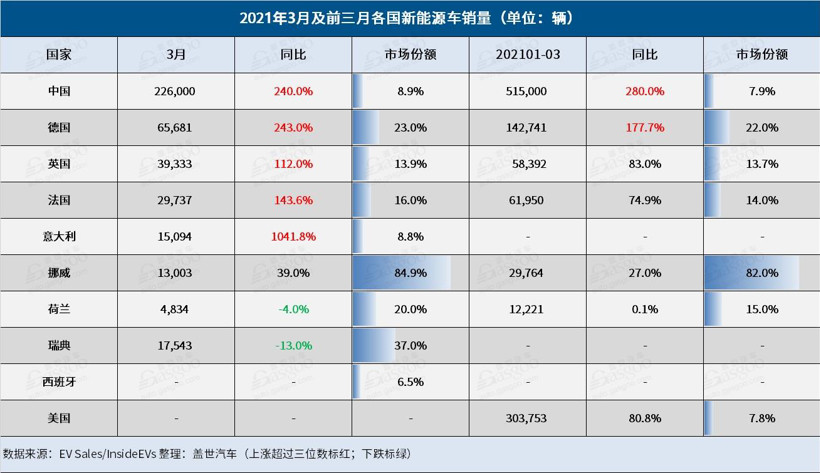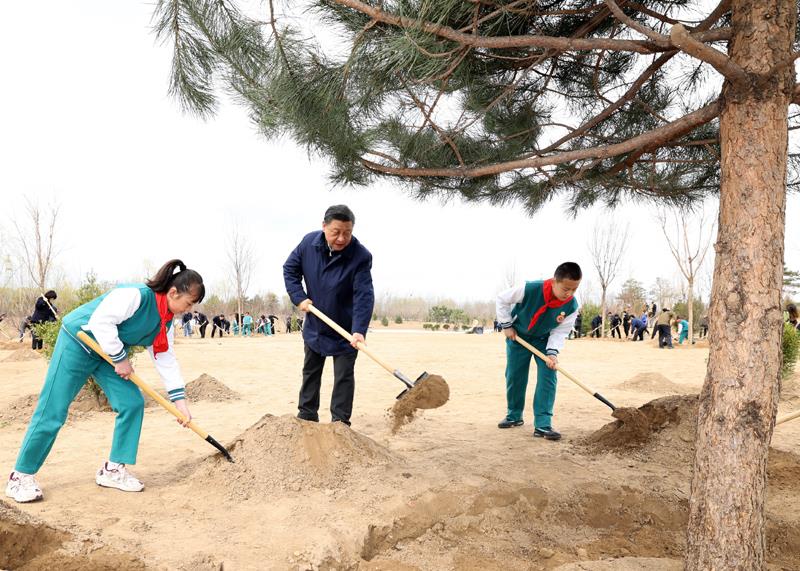[car home Information] The first month of the Spring Festival will be over, and the spring breeze will also blow to the day when spring blooms. Many car companies also launch a variety of new cars in March (Gregorian calendar) at this time. Such as Tank 500, BYD Destroyer 05, (|), etc. Look at the name, it sounds imposing. Let’s take a sneak peek.

● Great Wall Motor-Mocha DHT-PHEV
Time to market: March 1st.
Highlights of the model: equipped with DHT hybrid system independently developed by Great Wall.
The new car is positioned in a medium-sized SUV, and the pre-sale range is 299.0-315,000 yuan. In terms of appearance, the new car basically follows the design of the fuel version, the front face is more flamboyant, and the interior of the large-size air intake grille is decorated with chrome-plated lattice elements of different lengths, and the visual effect is quite imposing. The sharp LED headlight group is very eye-catching, and the blue decorative board is added inside, adding the flavor of "new energy".


The design of the tail is slightly heavy, which echoes the shape of the front face. In addition, the car still adopts the hidden exhaust design, and the tail mark has been adjusted accordingly. In terms of body size, the length/width/height of the car are 4875/1960/1690mm and the wheelbase is 2915mm respectively.

The interior part is basically the same as the fuel version, and the overall look is very simple. The most striking thing is that it is equipped with a 14.6-inch large-size central control panel, built-in Qualcomm 8155 cockpit chip, and there are also AR-HUD augmented reality head-up display, AI intelligent facial recognition, voice recognition system, Yanfei Lishi 12 speaker sound system, etc.

In terms of power, the new car is equipped with a plug-in hybrid system consisting of a 1.5T engine and a motor. The maximum power of the engine is 115kW(156Ps), and the maximum power of the front/rear drive motors is 135kW, which is matched with a DHT (Dedicated Hybrid Transmission) gearbox. Its two-wheel drive pure electric battery life can reach 204km, and its fuel consumption is only 5.55 L/100 km. The four-wheel drive version has the acceleration ability of "breaking 100" in 4.8 seconds.

Editor’s comment: This hybrid system independently developed by Great Wall has solved the problem of cruising range anxiety. And the combination of large battery pack and fast charge can also reflect the travel advantage of both distance and distance.
●Changan Automobile-Changan Auchan X7 PLUS Red Edition
Time to market: March 4th.
Highlights: exclusive red interior and exterior decoration, limited to 777 sets.
In terms of appearance, the new car basically continues the styling design of the ordinary version, and the overall style is young and sporty. The main change of the new car is the application of brand-new Xingcan red car paint, which adopts electroplating intelligent painting process, which has enhanced the hardness and oxidation resistance of the paint layer, and is more wear-resistant and corrosion-resistant. In addition, the new car will also be equipped with 19-inch wheels, LED headlights and penetrating taillights as standard.




Interior, the new car is also wrapped by China red color matching, which is unified with the appearance. The configuration will be equipped with a combination of a 10.25-inch full LCD instrument and a 12.3-inch central control panel, built-in OnStyle3.0 intelligent control eight nuclear car system, equipped with Geeker internal and external double-face intelligent control system, Oppo Watch control, Baby in car child care mode, and no music.

In terms of power, the new car will be equipped with a new generation NE 1.5T turbocharged four-cylinder engine of Blue Whale, with a maximum power of 188 HP and a maximum torque of 300 Nm. In terms of transmission system, it is matched with a 7-speed wet dual-clutch gearbox.
Editor’s comment: The exclusive red color of the interior and exterior of the new car gives consumers more excitement and liveliness. The multi-color gradient of bright red, golden red and dark red is staggered, which is believed to make the car color of this star red paint have a good optical interference effect and visual experience.
● Great Wall Motor-Tank 500
Time to market: March 18th.
Highlights of the model: 3.0T V6+9AT power combination, enjoying hard-core and luxury.
At present, the pre-sale price of the tank 500 has been started, and the pre-sale price of the new car is 335,000-395,000 yuan. The customized version with a price of 395,000 yuan will adopt a two-color body, while the pre-sale price of the regular version will be 335,000-363,000 yuan. The front face of the new car adopts a large hexagonal air intake grille, and the protruding design is full and powerful. The front bumper is designed through, and the generous style is also domineering.


The shape of the rear of the car is square and tough, and the taillights on both sides are vertically arranged and connected by wide chrome trim strips. In terms of body size, its length, width and height are 5070mm/1934mm/1905mm and its wheelbase is 2850mm, which is slightly larger than Prado.

The layout of the interior is full of luxury and layering, and the wooden decorative board, soft leather and clock are used to set off its luxury. In addition, the new car also uses a full LCD instrument panel and a large-size floating screen, and the auxiliary instrument panel area is also equipped with an electronic shift mechanism and a knob-type function control key. In terms of seat layout, the new car will be available in 5-seat and 7-seat models.

In terms of power, the new car will be equipped with a 3.0T twin-turbocharged V6 engine with a maximum power of 354 HP (260 kW) and a maximum torque of 500 Nm, which is matched with a 9-speed automatic manual transmission. In terms of four-wheel drive, it adopts the third generation intelligent four-wheel drive system with mechanical locking function, AWD uses a brand-new electromagnetic clutch execution system, and has 11 terrain models for off-road selection.

Editor’s comment: Hard-core and luxurious interior and exterior decoration, plus domineering name, Tank 500 can be said to be a topical and powerful product. The car may become an alternative product to meet the needs of users in the field of non-loaded medium and large SUVs after the domestic Prado is discontinued.
● Changan Lincoln-Lincoln Z
Time to market: March 12th.
Highlights of the model: two styles of appearance kits, 27-inch penetrating large screen and eye-catching
As Lincoln’s first domestic car, the new car is positioned as a medium-sized car and the successor of Lincoln MKZ. It was officially launched at Guangzhou Auto Show in 2021 and announced the pre-sale price range of 255,000-342,000 yuan. The car will provide two different styles of appearance kits, I enjoy and I cool, showing fashion and sports styles respectively. On the side of the car body, the new car adopts the hidden A and B pillar design, which creates the visual effect of the suspended roof.



The shape of the tail is layered, and the through taillight is a popular design element. The rear enclosure adopts a layered design, which also has a good visual effect. In terms of body size, its length, width and height are 4982mm/1865mm/1485mm respectively, and its wheelbase is 2930 mm.

In terms of interior, the new car adopts a super-long continuous screen design consisting of a 12.3-inch LCD instrument and a 27-inch through screen, and is equipped with Lincoln’s "Nebula" human-computer interaction system. The dual-spoke steering wheel uses touch buttons, and the bottom of the penetrating big screen is a button-type shift. The whole interior shows a sense of technology and luxury.

In terms of power, the new car will be equipped with a 2.0T turbocharged engine with a maximum power of 246 HP and a peak torque of 376 Nm, which is matched with the 8AT transmission.

Editor’s comment: With the combination of two styles of appearance kits and continuous screen, Lincoln caters to young consumers in an all-round way, but also gives them more choices. It is reported that the car will also plan to launch a hybrid version. By 2023, the Lincoln family will all be electrified and intelligent.
● BYD-Song MAX New Energy
Time to market: March 12th.
Highlights of the model: equipped with DM-i plug-in hybrid system consisting of 1.5L engine and motor.
The appearance of the 2022 Song MAX DM-i continues the "Dragon Face" family design, and the enhanced scale three-dimensional jumping grille is more layered, while the new dragon whiskers on both sides are decorated with chrome-plated bright decorative strips, and the diamond dzi LED headlights make people shine.


The side of the car body stretches flexibly, and the addition of the "cabin roof" does not affect the streamline design of the car body at all, but adds a touch of outdoor feeling. The dragon claw mark penetrating taillight at the tail is also very recognizable, and the Yue Long nebula flowing turn signal adopts LED matrix design. It is reported that the 2022 Song MAX DM-i has 6-seat and 7-seat models to choose from, among which the "upgraded roof" models are all 6 seats. After the "upgrade", the 2022 Song MAX DM-i is as high as 1880mm, and the interior space is more spacious.

In terms of interior, the new car adopts the combination of LCD instrument and central control large screen, which has a strong BYD family style. At the same time, the new car adopts the middle control decorative board and door decorative board with wave elements, which highlights the sense of texture and grade. In addition, the seat of the new car adopts a gradient color scheme of white, light brown and dark brown, which highlights the warmth and home atmosphere. The addition of the "cabin roof" will give passengers in the car more head space. At the same time, as can be seen from the figure, the third row of seats in the new car supports full flat down.

In terms of power, the new car will be equipped with a DM-i plug-in hybrid system consisting of a 1.5L engine and a motor, with a pure battery life of 105km, a fuel consumption of 4.4L/100km, a comprehensive battery life of 1090km when fully charged and fully fueled, and an acceleration of 7.9 seconds at 0-100 km/h. The energy storage battery adopts lithium iron phosphate battery, and the 105km battery life version can also provide fast charging, and the power can be charged from 30% to 80% in 30 minutes, which can improve the frequency of daily commuting.
Editor’s comment: The 2022 Song MAX DM-i comes with "Super Camp Mode", which provides the function of VTOL mobile power station, which can discharge household loads with a maximum power of 3.3kW. The new plug-in hybrid system will also bring new experiences.
● SAIC Volkswagen-New Weiran
Time to market: March 13th.
Highlights of the model: changing the suspension screen and electronic gear handle.


In terms of appearance, as a modified model, the new Weiran basically follows the main design of the current model, and the overall style is stable. The front face adopts the family design of Volkswagen brand, and six horizontal chrome-plated bright strips outline the huge outline of the middle net, which is connected with the LED headlights on both sides. The shape of the tail is equally stable. In terms of body size, the length, width and height of the new car are 5346/1976/1781mm and the wheelbase is 3180mm respectively.


In terms of interior, the overall design layout of the new car follows the design style of the current model, and the biggest change is to replace the popular suspended large-size central control screen instead of the current embedded central control screen, thus enhancing the visual freshness of the vehicle. In addition, the "VILORAN" logo on the front trim panel of the new passenger seat and the detailed shape of the center console are one of the few changes.

In terms of power, all the new models are equipped with 2.0T engines, and two versions of low power (330TSI) and high power (380TSI) are provided according to different configurations. The maximum power is 186 HP (137 kW) and 220 HP (162 kW) respectively, and the peak torque is 320 Nm and 350 Nm respectively. In terms of transmission, it is matched with a 7-speed DSG dual-clutch gearbox.

Editor’s comment: As an annual redesigned model, it can upgrade the floating central control touch screen and small electronic gear handle. This kind of design that keeps pace with the times can also bring some freshness to users. I wonder if you like this design?
● Jiangling Ford Technology-Lingrui
Time to market: March 17th.
Highlights of the model: positioning medium-sized SUV, family design
The car was also unveiled at the 2021 Guangzhou Auto Show. At present, the new car has been officially opened for pre-sale, and the pre-sale price range is 158,800-188,800 yuan. In terms of appearance, Lingrui still adopts the Ford family-style design language, the chrome-plated texture in the polygonal grille is full of three-dimensionality, and the design of split headlights is adopted. The "corner of the eye" on the outer side of the upper daytime running light belt is also sharper. According to the previous application information, the new car will also launch a Special Edition to enhance the sense of movement by further blackening the exterior decoration.


The shape of the tail is also distinct, and the silver decoration is added to the rear bumper to outline it. In the interior of the taillight group, the light source layout adopted by it has high recognition after lighting. In terms of body size, the length, width and height of the new car are 4630/1935/1706mm and the wheelbase is 2726mm respectively.

In terms of interiors, the new car uses a deep and shallow color matching, and the overall lines and styling layout are also more straight and concise. The dual screen design of dual 12.3-inch full LCD instrument and central control screen also meets the preferences and needs of current consumers. The new car is also the first model equipped with Tencent TAI 4.0 intelligent system, with car WeChat, Tencent smart driving map, national karaoke, Tencent conference and rich extended applications.

In terms of power, the new car is equipped with a Ford EcoBoost 170(1.5T) four-cylinder engine, with a maximum power of 170 HP and a peak torque of 260 Nm, matching a 7-speed wet dual-clutch gearbox.

Editor’s comment: Young style, split headlights, etc., its modeling design is still keeping up with the trend of the times. The first intelligent system equipped with Tencent TAI 4.0 will be more playable. The pre-sale price of 150,000-180,000 yuan is still worth looking forward to for a medium-sized SUV with a joint venture brand.
● Weilai-Weilai ET7
Official delivery time: March 28th.
Highlights of the model: higher level of assisted driving and longer pure electric cruising range.
Although the new car has been on the market for one year (the guide price is 44.80-52.60 million yuan), its delivery time is in March this year. The new car is positioned as a pure electric medium and large car. In terms of appearance, the styling design of the new car is extended from the Weilai ET Preview concept car and adopts the design language of a new generation of X-bar. It is worth noting that there is a lidar and two cameras above the front windshield. In addition to lidar, there are as many as 33 sensors in the vehicle, equipped with NVIDIA Orin chips with a total power of up to 1016 TOPS to help the vehicle achieve a higher level of assisted driving ability.




The side of the car body adopts slip-back design, and the downward arc of the roof is smooth, and it is equipped with a hidden door handle. The design of the tail is simple but full of layers. The upturned duckling tail and the through taillight design are all popular design elements. In terms of body size, its length, width and height are 5098/1987/1505mm and its wheelbase is 3060 mm.

The interior continues the family design style, giving people a minimalist visual effect, and even the air outlet is hidden. In addition to the 10.2-inch LCD instrument and the 12.8-inch central control panel, the new car is decorated with renewable wooden decorative panels, and with multi-layer sound insulation and privacy glass, it provides a cool frameless door design.

The car is equipped with front and rear dual-drive motors. The comprehensive maximum power of the system is 480 kW, the peak torque is 850 Nm, and the 0-100km/h acceleration time is 3.9 seconds. In terms of battery life, the car has three kinds of battery packs with battery capacity of 70kWh, 100kWh and 150kWh, and its cruising range under NEDC conditions exceeds 500km, 700km and 1000km respectively.

Editor’s comment: If you only see the avant-garde shape and minimalist interior layout of this car, it is not deep. Its higher level of assisted driving, cutting-edge technology and various versions of long cruising range will bring you a fresher experience in terms of intelligence and electrification.
● BYD-destroyer 05
Time to market: or March 20th.
Highlights of the model: equipped with Xiaoyun-plug-in special 1.5L engine.
The new car has a resounding name, which is also the first model equipped with DM-i super hybrid warship series. It is positioned as a compact car with an estimated price of 120,000-150,000 yuan. In terms of appearance, the front face design of the new car is very scientific and technological. It adopts a borderless grille design, and the interior is decorated with dotted elements. The headlights above are sharp in shape and matched with penetrating trims, which has a strong overall sense.


The tail adopts slip-back design, and the penetrating taillights are also quite recognizable, which further enhances the sense of fashion. The design of the rear enclosure under the tail is more complicated, and it shows a good layering with the ventilation openings on both sides. In terms of body size, the length, width and height of the new car are 4780/1837/1495mm and the wheelbase is 2718mm respectively.


The design style of the interior still has the characteristics of BYD family, but the details support has been improved, which is more simple and smooth. The new car also uses an 8.8-inch full LCD instrument and a 15.6-inch floating multimedia touch screen, which is also equipped with adaptive rotation technology. The sports seats equipped with the new car not only attract attention, but also enhance the texture inside the car.

In terms of power, the new car will be equipped with a 1.5L DM-i plug-in hybrid system of BYD472QA, in which the maximum power of the engine is 110 HP (81 kW) and the maximum torque is 135 Nm. Coupled with the motor, as a reference, the 55 km version of Qin PLUS DM-i has a peak power of 180 HP and a peak torque of 316 Nm. The 120km version has a peak power of 197 HP and a peak torque of 325 Nm.

Editor’s comment: The mighty and resounding name started the "first shot" of the super hybrid warship series. In the future, the hybrid products of these warship series and the pure electric marine life series will usher in a product year in the new energy field.
●FAW Pentium-Pentium B70S
Time to market: within March
Highlights: coupe SUV, rich power combination
The new car is positioned in a coupe SUV, and the pre-sale price range is 11.09-14.39 million yuan. In terms of appearance, the new car is built with the design language of "sexy curved surface of light and shadow philosophy", and the front face is more radical. The oversized trapezoidal lower grille with sharp headlights has outstanding visual effects. The side of the car body adopts the design of coupe SUV, which is more fashionable than the traditional SUV.


On the tail, the wide and flat styling style enhances the sense of movement of the new car, and the car is also equipped with penetrating taillights, which further enhances the visual width of the tail. In addition, the two-way exhaust styling also adds more sporty atmosphere to the car. In terms of body size, its length, width and height are 4555/1850/1515mm respectively, and its wheelbase is 2750mm.

In terms of interior, the overall modeling layout also has a family style. The new car is equipped with a dual-screen design with a 7-inch full LCD dashboard and a 12.3-inch multimedia touch screen, and also uses an air conditioning outlet that runs through the co-pilot. In addition, the new car also has a dynamic sports seat. In terms of configuration, it is equipped with Pentium D-Life 5.2 AI intelligent ecosystem+smart home service, providing full ecological services for car scenes including telephone, navigation, audio-visual entertainment, after-sales service, voice assistant and smart home.

In terms of technology configuration, the new car will be equipped with L2-level intelligent driving assistance functions, such as lane keeping, ACC adaptive cruise, front vehicle collision warning, intelligent speed limit reminder, automatic emergency braking, automatic parking system (APA), and 360-degree panoramic image (with 7 switching perspectives and 3D mode, you can drag and drop the perspectives at will).

In terms of power, the new car will provide two sets of power systems, 1.5T and 2.0T, with the maximum power of 169HP and 224HP respectively and the maximum torque of 258Nm and 340Nm respectively. In terms of transmission system, the engine is matched with 6-speed manual, 7-speed wet dual clutch and 6-speed automatic manual transmission provided by Aisin (2.0T model).

Editor’s comment: The pre-sale price of about 110,000-140,000 yuan is actually quite fragrant. In addition, with the family design of Pentium’s new generation and the gradual improvement of brand effect, new products may have a good degree of attention.
● Starway-Starway Chasing the Wind ET-i
Time to market: within March
Highlights of the model: plug-in hybrid model with comprehensive battery life greater than 1000km.
The pre-sale price of the new car has been announced on January 20th, which is 150,000-160,000 yuan. In appearance, the new car is basically the same as the traditional fuel version, showing a strong sporty atmosphere. The front face of the new car is decorated with three large-size horizontal grilles and sports on both sides, showing a more fashionable visual effect. At the same time, four LED light sources are used inside the headlight group to form a matrix headlight group, which looks radiant after lighting.


The rear end of the car is still designed with penetrating taillights, and the special logo of plug-in hybrid models is added to improve the recognition (note: the tail logo is expected to be replaced with ET-i logo in the future), while its charging interface is designed at the front left wheel eyebrow, which is one of the few places different from the fuel version. In terms of color matching, the new car has three body colors: Li Taibai, Sima Grey and Ji Xiaolan.


The interior part is still familiar to us. As a whole, the layout of the fuel version is extended, and the dual 12.3-inch integrated screen combination is integrated with the full LCD instrument and the central control screen. The new car is wrapped in black leather with stitching on a large area, which enhances the sense of luxury. In terms of configuration, as a reference, the Star Road Chasing Wind Fuel Edition is equipped with Lion Lion Zhiyun 4.0 system, which supports FOTA remote upgrade. The high-profile models also provide AR real-life navigation, face recognition and other functions.

In terms of power, the new car will be equipped with a plug-in hybrid system consisting of a 1.5T engine and an electric motor, matching the satellite nuclear power ET-i full-engine super hybrid (hybrid transmission DHT), in which the maximum power of the engine is 156 HP, the peak torque is 230 Nm, and the battery life is more than 1000km under comprehensive working conditions. In addition, the car will also be equipped with a ternary lithium battery provided by Guoxuan Hi-Tech.

Editor’s comment: As far as the current market demand is concerned, the hybrid vehicle with fuel economy and no endurance anxiety is still very popular in the market. The plug-in hybrid technology of "Star Nuclear Power ET-i Full Engine Super Hybrid" carried by the new car is quite interesting (with the technical advantages of 3 engines, 3 gears, 9 modes and 11 speeds), and we also hope that it can have good results in the market inspection.
● Dongfeng Xiaokang-Scenery MINIEV
Time to market: within March
Highlights of the model: simple and compact, with affordable pre-sale price.
Scenery MINIEV is a brand-new miniature pure electric vehicle. At present, it has announced the pre-sale price of 28,600-41,600 yuan. In terms of appearance, the shape of the new car is simple and compact, while the style of the front face belongs to the "tough" design in this field. The side of the new car retains the design concept of "small square box" of micro electric vehicle, and it is matched with low wind resistance wheels.



The design of the rear of the car clearly echoes the front part, and the outer side of the taillights is also decorated with black. At the same time, the new car will provide rich schemes such as white, pink, green and blue in color matching for consumers to choose from. In terms of body size, the length, width and height of the new car are 2995/1495/1640mm and the wheelbase is 1960mm respectively.

In terms of interior, the car’s color matching is more lively, and the central control layout has a simple style of this class. According to the official statement, in addition to the 7-inch LCD instrument with integrated reversing image function, the Scenery MINIEV candy model also provides a 9-inch central control screen. In terms of seat layout, the car adopts a two-door four-seat layout.

In terms of power, the new car will be equipped with a motor with a maximum power of 34 HP, and the cruising range and battery capacity have not yet been officially announced. For more information about the new car, we will continue to pay attention to the report.

Editor’s comment: With Hongguang MINIEV making waves in this market segment, many car companies have joined the competition one after another in order to get a share of "cake". Although the name of Scenery MINIEV is more similar, it will inevitably be considered as a bit "hot". The product quality of the new car and the affordable price after listing may be the key to help it enhance its influence.
●Great Wall Motor-Euler Ballet Cat
Time to market: or March 30th.
Highlights of the model: retro styling design
In terms of appearance, the retro design gives the new car a high degree of recognition, in which the headlight group is replaced with a horseshoe design, and it has a brand-new chrome-plated front bumper shape, and will also be equipped with a front radar sensor. Viewed from the side, the sleek design of the car is matched with the curved lines of the roof, which complements the same retro rims, rearview mirrors, door handles and other components.



On the tail side, the large silver chrome-plated rear bumper and rear spoiler are very eye-catching, with the sleek trunk lid and horseshoe taillights echoing the headlights, which further highlights the retro charm.

In terms of interior, the dashboard and central control panel of the new car continue the continuous screen design, but the round rectangular style with air conditioning outlets on both sides looks more harmonious and lovely, combining the popular design with soft and cute style. The steering wheel and seat with retro style further evoke people’s memories of classic cars.

In terms of power, the new car is equipped with a driving motor with a maximum power of 126 kW and matched with lithium iron phosphate batteries, providing two maximum cruising ranges of 400km and 500km.

Editor’s comment: The new car is expected to be pre-sold in early March and listed at the end of March, and it is reported that the future price of the car may be around 200,000 yuan. The new car combines classic retro elements with soft and cute style, which makes people remember the classics and have some fresh feelings. It is exciting good news for fans who love retro products.
● SAIC Chase-SAIC Chase MAXUS G90
Time to market: or March 31st.
Highlights of the model: positioning the medium and large MPV, and the design is amazing.
In terms of appearance, the new car adopts a huge front grille with a "V-shaped" mesh design, which looks amazing. In addition, the new car also uses a split headlight group. The LED daytime running lights are integrated with the front grille, while the far and near light groups are integrated into the heat dissipation openings on both sides of the front enclosure, which increases the integrity of the front. From the side of the car body, the new car adopts the standard MPV body structure, with double side sliding doors, sharp door handles and silver chrome trim strips, which makes the whole car have a good sense of luxury.



In the rear part, the new car is equipped with a small-sized roof spoiler, and the taillights are designed with the popular through LED light group, which is highly recognizable after lighting. There is also a penetrating chrome trim strip on the rear enclosure and a hidden exhaust layout to further enhance the overall feeling of the new car. In terms of body size, the length, width and height of the new car are 5280/1998/1845mm and the wheelbase is 3200mm respectively.

In terms of interior, according to the official map of the second row of seats, the new car adopts aviation-class seats and has a variety of functions. According to the previous news, the front center console of the new car is relatively simple in design, equipped with full LCD instrument+penetrating central control panel (we guess it is similar to SAIC Chase MAXUS MIFA 9). In addition, the new car also uses the design of arms to further increase the storage space in the central armrest area.

In terms of power, according to the application information, the new car will provide a 2.0T turbocharged four-cylinder engine with a maximum power of 234 HP (172 kW).

Editor’s comment: From G10/G20/G50 to today’s SAIC Chase MAXUS G90, SAIC Chase has infiltrated MPV models into various fields and car scenes. Although its interior part has not yet been presented, with such a luxurious and atmospheric appearance, the interior layout and style will not disappoint, and we guess that it may be more consistent with the interior of its pure electric product, SAIC Datong MAXUS MIFA 9.
● Changan Automobile-Changan UNI-V
Time to market: within March
Highlights: Positioning in compact sports cars.
As the third mass production model in Changan UNI series, the new car has been officially opened for pre-sale, with a total of four models, and the pre-sale price range is 10.89-13.19 million yuan. In terms of appearance, the new car continues the family design language of borderless grille. The geometric design elements of the combination of straight lines and broken lines are widely used in the front face, and the headlights arranged horizontally are relatively long and narrow, with dark triangular fog lights on both sides of the lower grille. At the same time, the new car also provides a sports version of the appearance kit, adding decorative strips of different colors from the car paint as embellishment. Changan UNI-V slip-back body modeling is one of its obvious characteristics, which further strengthens the visual effect of sports with the deep concave waistline on the side.



On the tail side, the popular through taillight group is still not absent, with the raised tail line below and the exhaust layout of four sides, which once again strengthens the sports attributes of the car. It is worth mentioning that UNI-V is also equipped with a rear spoiler that can be lifted and lowered electrically. This configuration can be described as a highlight in the same class. It can be manually controlled by physical/virtual buttons, providing an additional downforce of about 25 kg at most. In terms of body size, the length, width and height of the new car are 4680/1838/1430mm and the wheelbase is 2750mm respectively.


The overall style of the interior pursues the ultimate simplicity and movement, and a large number of lines and surfaces with tension are used to create a sense of structure. The instrument system is composed of three color screens spread horizontally, and with the interactive touch screen in the center, the four-screen linkage is also very rare in cars of the same class. The hidden air outlet that runs through horizontally creates a suspended visual effect.

In terms of power, the new car is equipped with a 1.5T Blue Whale series engine with a maximum power of 188 HP, and the transmission is matched with a 7-speed dual-clutch gearbox. At the same time, the official said that the new car will launch a 2.0T power version in the future.

Editor’s comment: In the past two years, Changan Automobile’s sense of design has really caught people’s attention, especially UNI series models, which have been at the forefront of avant-garde design. Coupled with its sports car positioning and not too expensive price, how can young people not be tempted?
★Full text summary:
One year’s plan lies in spring. In this sunny March, many brand-new models will be on the market soon. Some of them have already announced their pre-sale prices (such as Lincoln Z, Lingrui, Pentium B70S), while others are so domineering (Tank 500, BYD Destroyer 05), and Weilai ET7, which has been on the market for one year, has finally been officially delivered. So, is there a new car you are looking forward to? Welcome to leave a wonderful comment in the comment area below. (Text/car home Wang Liang)





































































































